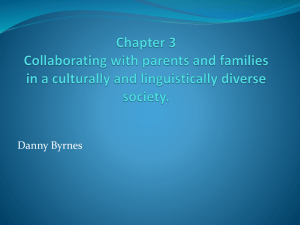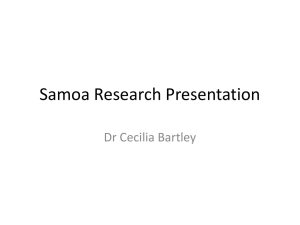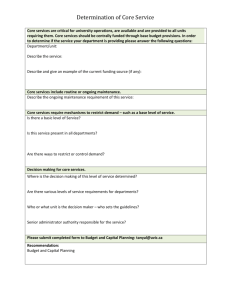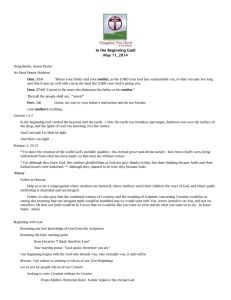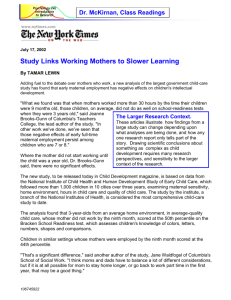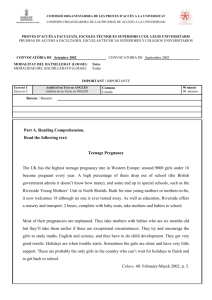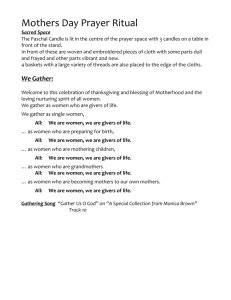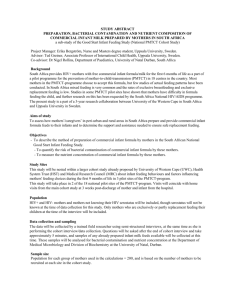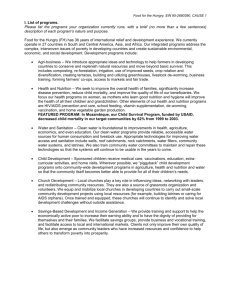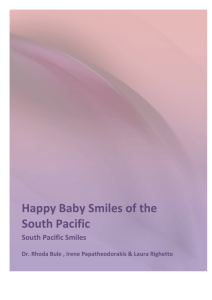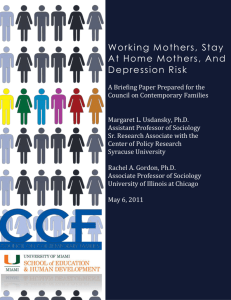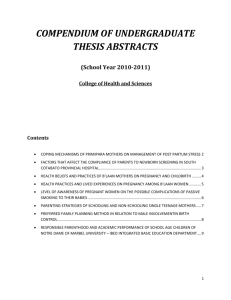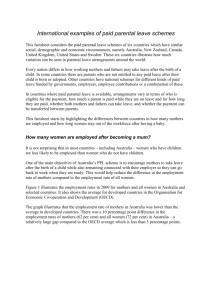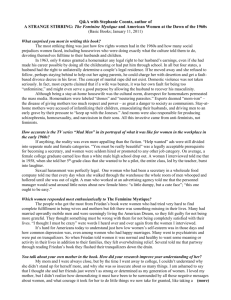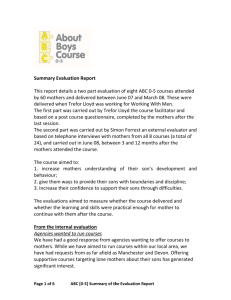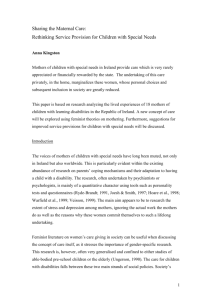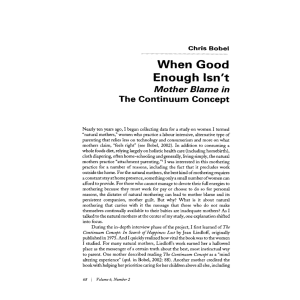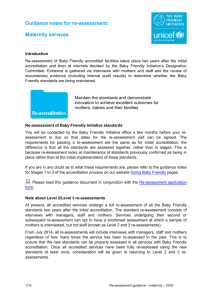Speech by COGTA and Human Settlements MEC Jacob Mamabolo
advertisement
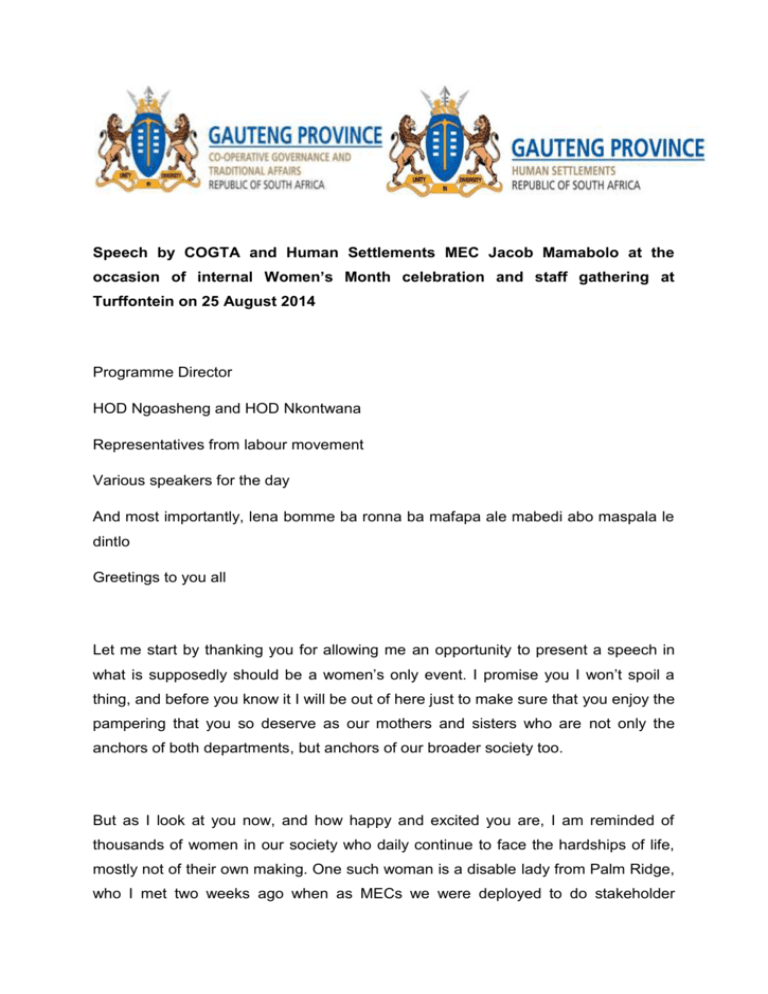
Speech by COGTA and Human Settlements MEC Jacob Mamabolo at the occasion of internal Women’s Month celebration and staff gathering at Turffontein on 25 August 2014 Programme Director HOD Ngoasheng and HOD Nkontwana Representatives from labour movement Various speakers for the day And most importantly, lena bomme ba ronna ba mafapa ale mabedi abo maspala le dintlo Greetings to you all Let me start by thanking you for allowing me an opportunity to present a speech in what is supposedly should be a women’s only event. I promise you I won’t spoil a thing, and before you know it I will be out of here just to make sure that you enjoy the pampering that you so deserve as our mothers and sisters who are not only the anchors of both departments, but anchors of our broader society too. But as I look at you now, and how happy and excited you are, I am reminded of thousands of women in our society who daily continue to face the hardships of life, mostly not of their own making. One such woman is a disable lady from Palm Ridge, who I met two weeks ago when as MECs we were deployed to do stakeholder engagements with communities. The father of the landlord, who is now late, wanted to evict this lady from a shack she was renting because the building of the RDP house is complete, which is part of an in situ development. To make matters worse, the man even cut electricity supply to this poor lady, showing no mercy over this lady’s disability. I had to intervene to stop this inhumane eviction, and thanks to the Rental Housing Tribunal we made sure her dignity is protected. This blatant display of insensitivity was a sign to me that we still have a lot of work to do to ensure respect and dignity of women in our society, and therefore as government we will continue to support women in all facets of life and ensure that equality and recognition of women tops the agenda of our nation-building. Thus the struggle for pushing back the frontiers of apartheid and inequality to a democratic and gender responsive country must still continue. The direct recognition and equalising of women in our society did not come by accident. It is a consequence of the basic principles of the ruling party, the African National Congress. Having lived through and experienced the harshness of apartheid, inequality and racial segregation, the ANC leadership and membership vowed to fight for a new society that would be different from what South Africa was back then. The ideal of this new society is best expressed in the basic objective of the ANC which is the creation of a united, non-racial, non-sexist and democratic society. This objective epitomises what a good, caring and prospective society should be, and through the NDP we will realise this society where we are all equal and share in the country’s wealth. Undoubtedly the lives of the women of South Africa have changed for the better. More than hundred years ago, the role of men and women were clearly defined: the man was a worker and a provider, and the woman was a mother and a housewife. This picture looks very different today; women are now working equally as men, whilst their roles as mothers and as nurturers have remained. The past increase in the inequalities between men and women was growing alarmingly, and in South Africa it was worse because there was also a racial oppression against women as well. In protest against such subjugation of women, the women’s movement was born. In South Africa, the 1956 Women’s march to the Union Buildings, cemented the resolve by all women of South Africa to fight for the total eradication of women’s oppression and racial discrimination. With such events as we have today, we continue to honour the strength, the courage and the power of women of all races, for rising against the injustices in 1956 during a period characterized by injustice and inequality. Since 1994 and with the advent of democracy, the lives of women have changed in South Africa. The lives of women have changed for the better. The progressive Constitution of our country guarantees women equality and access to all forms of opportunities, be it work, business or leadership. Our yesteryear leaders such as Lilian Ngoyi, Albertina Sisulu, Ruth First, Adelaide Tambo and many others have left a strong foundation for women of South Africa to flourish and to fully realize their own potential. Today women are now in important and strategic positions, like some of you here. It must be noted that no matter where you are placed at work or society, each one of you here is a change agent, and you are all contributing to the betterment of our society. Whilst this event today is about joining the whole nation in celebration of Women’s Month, it is also about recognising those women who have been with both departments for more 20 years, serving the people of Gauteng selflessly and contributing towards making their lives better. The two Departments that I lead are responsible for two very important deliverables that are very key to the sustainability of our society. Every member of this society must live under a roof, and there’s no question about that. This is the task at the heart of Human Settlements. Equally, a basic service such as water, environmental cleanliness, energy, access to infrastructure and so on requires a capable leadership and management that will make sure that these services are available to communities at all times. This is a task and responsibility at the core of COGTA. Both departments are the custodians of these very basic rights. Part of providing these two important responsibilities and managing them properly is to make sure that we avail as much support as is possible to those who are employed and deployed to making sure of their delivery. Whilst we celebrate the empowerment of women, we are also mindful of the fact that life for women has becomingly increased difficult and challenging, with women playing dual roles at home and at work. The challenge has been to balance home and work life. It is for this reason and others that the focus of this event today is on women’s health, wellness and how to create a working environment where women support each other and on how the departments can also contribute in the women’s development. Honestly speaking, balancing home and work life is not an easy task for modern day women. Families, especially children, expect no less from mothers. The nurturing of children and homekeeping responsibilities remain demanding despite women taking leadership roles at work. Over and above that, in the past 100 years, the world experienced a number of economic recessions, and these have put an added pressure on working mothers, especially single mothers. Women also face resistance from men who do not want to give up their dominion in the workplace. Needless to say, in some organisations women are still being overlooked when it comes to promotions in the workplace. As if that was not enough, women are still being harassed sexually at work. Despite these challenges, we will continue to lobby for women’s rights, and this struggle will continue until each and every woman is free. We are also not forgetting husbands who feel threatened when their wives climb up the corporate ladder. Instead, they must support their wives, a support that will assist their wives to excel at work, and at home. One of the best ways to strike a balance between work and family life is to manage how your families perceive your work. This perception affects how they relate and respond to the work that you do. When you make it a daily habit to complain about work, bosses, salaries, this will result in enforcing wrong perceptions about the environment of workplaces in the minds of your children. My advice to you is that it is much more prudent to promote the positive aspects of work to your children, this will include; the challenges, people you meet, feeling of accomplishment and the opportunities for progression and advancement, for an example. When you do this, you will make your children to aspire to be like yourselves, or even better. What we plant in our children will have an important effect in their adult and working life. Both your families and your work need you. At home some of you are single mothers, breadwinners, grandmothers, and every family member is looking up to you as women to provide for your families. You have it in you as women to meet and exceed the expectations that society have of you. I have no doubt in my mind that each one of you here will make a meaningful change in your family and work lives. Let us use this women’s month to reflect on your strengths, and then find out how best to use them to change the lives of South Africans for the better. I thank you.
